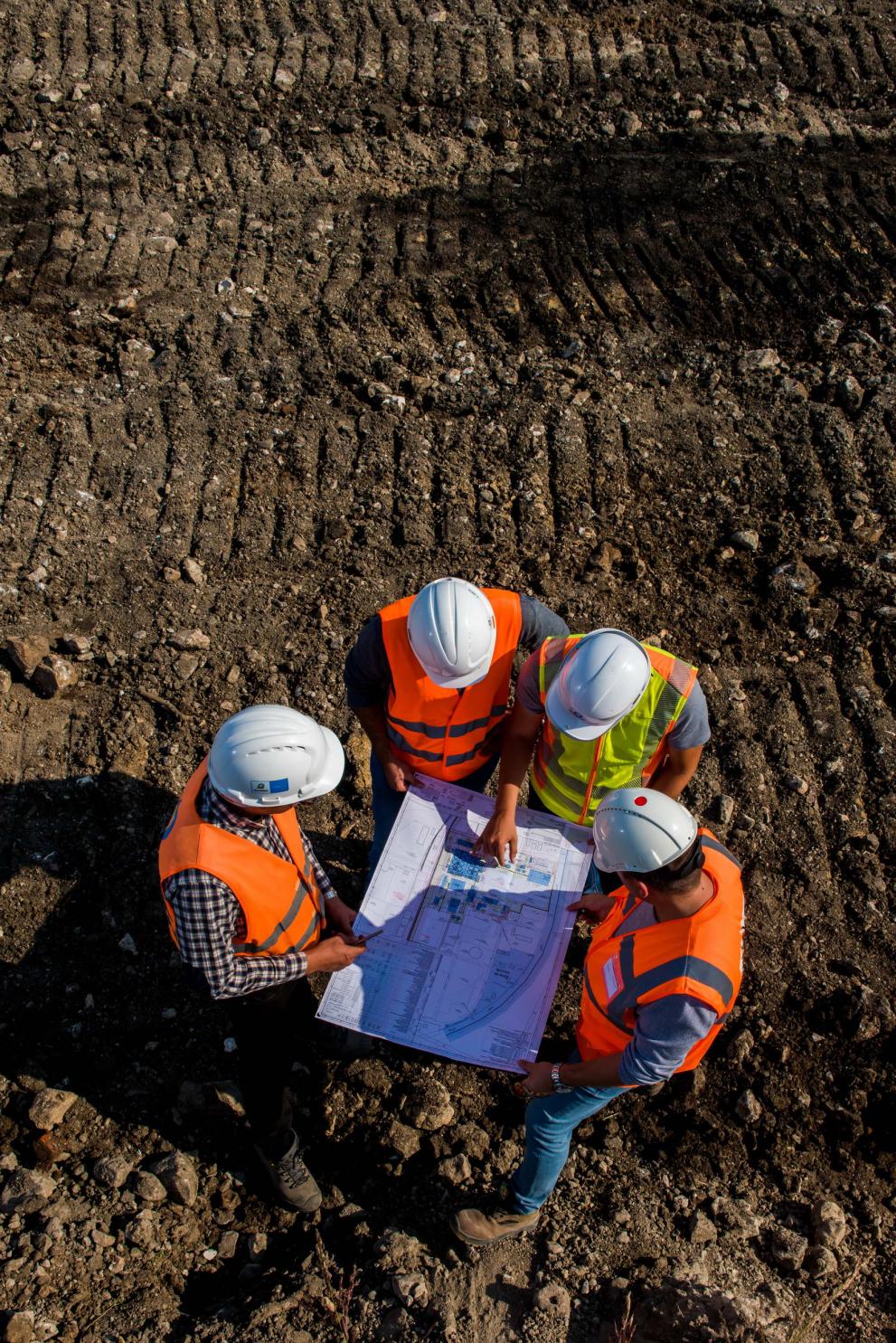Cultivating change, harvesting progress: CBE JU’s 2024 in review
Explore CBE JU's key achievements at a glance.
With its ability to bring together primary producers, researchers, innovators and industries to develop groundbreaking bio-based solutions, CBE JU is a key player in propelling Europe’s transition to a sustainable, circular bioeconomy. The partnership is not just advancing innovation in the bio-based sector, it is redefining the production and consumption patterns in Europe.

At the end of 2024, CBE JU had supported a total of 192 projects.

70
Ongoing

31
Newly launched

120
Completed
1 in 4
Projects coordinated by an SME
In 2024, CBE JU delivered strong results, reinforcing its role as a key driver of Europe’s bio-based transition. With a robust portfolio of varied projects, including impactful flagship initiatives, the programme advanced technological innovation, strengthened industrial deployment and supported the EU’s goals for a sustainable and circular economy.
A crucial part of this achievement was the continued strong involvement of small and medium-sized enterprises. SMEs accounted for 32% of all participants and roughly one-third of funding. They were also taking on strategic leadership role within the programme by coordinating one in four CBE JU-funded projects.
In 2024, CBE JU delivered tangible results that support Europe’s ambition for a competitive bioeconomy. By aligning innovation with EU policy priorities, we are helping to build a more sustainable, resilient and competitive Europe. These outcomes reflect the power of collective action and the importance of translating strategy into real-world impact.
Innovation actions (IAs) focus on integration, scaling-up and deploying technologies to advance them towards commercial scale, particularly through flagship biorefineries.
Research and innovation actions (RIAs) develop and validate new technologies at the laboratory or small pilot scale.
Coordination and support actions (CSAs) address cross-cutting challenges of the bioeconomy, including developing skills, identifying regulatory barriers and promoting user acceptance.
Develop innovative technologies to produce sustainable and circular bio-based solutions.
Use renewable resources like agriculture, aquaculture, forestry, and food waste.
Replace non-renewable raw materials across industries.
Provide concrete solutions to environmental challenges and create new economic opportunities across regions.

CBE JU is funding first-of-their-kind biorefineries and demonstration plants to help expand the European circular bio-based economy.
72
New publications
149
Patents filed and 26 awarded
859
Scientific and 2985 non-scientific publications in total
Collaboration is at the heart of every successful CBE JU project. Join our networking platform with over 1,700 active members to explore partnership opportunities, pitch your ideas, and become part of Europe’s growing bio-based innovation community.
CBE JU delivered on its widening participation strategy, with multiple initiatives boosting stakeholder engagement and fostering collaboration in less-represented regions. The 2024 CBE JU call for proposals received a record number of submissions marked by a strong increase in participation from newcomers and SMEs across Europe’s bio-based community. The noticeable rise in networking activity on the CBE JU platform for applicants underscored the sector’s growing momentum and collaborative spirit.
A standout result of the 2024 call was the sharp rise in applications from all 15 Horizon Europe widening participation countries. Compared to the previous call, the number of applicants from these countries more than doubled, illustrating the success of CBE JU’s outreach efforts. Notably, Lithuania and Romania saw the most significant growth, each more than doubling their number of applications for the programme compared to 2022, a clear indication of their commitment to advancing innovation and fostering sustainable growth.

CBE JU and its predecessor, Bio-based Industries Joint Undertaking (BBI JU), have not only exceeded key performance indicators but also catalysed investment, advanced value chains, and brought new bio-based materials and products to market.

• 64.5% reduced GHG emissions
• 68.8% reduced or reused waste
• 51% lowered energy use
• 37% improved water efficiency
• Knowledge transfer
• Bioeconomy awareness
• Standards and regulation
• Safer products and processes
CBE JU has consistently enabled meaningful connections between innovators and partners, turning ideas into real projects through its networking platform. The POLYMERS-5B consortium is a perfect example: a partnership sparked through the platform that led to a successful proposal.

ㅤ
SWEETWOODS
The opening of the CBE JU-funded SWEETWOODS flagship biorefinery in Imavere, Estonia, enables the transformation of wood residues, such as sawdust and wood chips, into high-value goods ranging from personal care items to insulation materials for the building industry.
ㅤ
CIRCULAR BIOCARBON
Located in Zaragoza, Spain, the Circular Biocarbon’s flagship biorefinery started producing green graphene and bio-based fertilisers from sewage sludge and municipal waste. This cutting-edge plant, the first of its type in Europe, is expected to revolutionise the way cities handle and treat urban waste.
ㅤ
PEFERENCE
The PEFerence project has built the first industrial-scale biorefinery producing FDCA, a bio‑based chemical. The goal is to replace a significant share of fossil-based plastics with 100% bio‑based polyesters produced at the biorefinery. These can compete with traditional packaging products in price and performance when produced at scale. The resulting bio‑based material is sustainable and completely recyclable.
ㅤ
B-FERST
The B-Ferst project, completed in October 2024, developed eight bio-based fertilisers using nutrients recovered from various biowaste sources, including ash, struvite, compost, and plant-based biostimulants.
ㅤ
OLEAF4VALUE
The OLEAF4VALUE project, completed in June 2024, developed a valorisation system for olive tree leaves using advanced green extraction and isolation technologies. The project created tailor-made prototypes for high-value sectors such as food, feed, health, cosmetics, and chemicals. This biorefinery concept laid the groundwork for the ongoing CBE JU-funded flagship project SUSTAINEXT, which focuses on producing plant-based extracts and ingredients from sustainable feedstocks.
ㅤ
GLAUKOS
Completed in May 2024, the GLAUKOS project, has developed alternative polymers that could help reduce microplastic pollution in water. The project’s team successfully tested them on fishing gear and clothes, as well as created technologies for biodegradation, mechanical breakdown, and ecotoxicity to improve the products’ end-of-life record.
The NEBA Alliance is tackling the skills gap in sustainable construction, an area where over 75% of EU companies report hiring challenges. The project is co-designing the NEB Academy in collaboration with an international network of educators and training providers. A new online platform will support a vibrant NEBA community of practice, enabling knowledge-sharing on circular, bio-based processes and fostering connections between learners, educators, and professionals.
